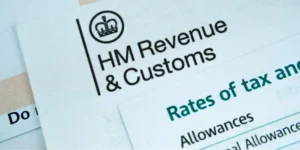
Is your small business eligible for Employment Allowance?
Changes to Employment Allowance and employers’ National Insurance were some of the most significant updates in the 2024 Autumn Budget. Having promised
TEL 01858 450015

In the complex landscape of UK business operations, mastering the intricacies of company director payroll presents a unique set of challenges and considerations. Unlike regular employees, company directors carry specific legal and tax obligations that necessitate careful management to ensure compliance with HM Revenue & Customs (HMRC) regulations.
In this comprehensive guide, we delve into the essentials of company director payroll in the United Kingdom.
Understanding Legal Obligations
Navigating Tax Implications
Practical Payroll Management Strategies
Conclusion
Mastering company director payroll management in the UK necessitates a holistic approach that encompasses a thorough understanding of legal obligations, meticulous attention to tax implications, and the implementation of best practices.
By adhering rigorously to HMRC regulations, maintaining meticulous records, and using professional expertise where necessary, businesses can navigate the complexities of company director payroll with confidence and ensure sustained compliance with UK tax and employment laws.

Changes to Employment Allowance and employers’ National Insurance were some of the most significant updates in the 2024 Autumn Budget. Having promised

In the complex landscape of UK business operations, mastering the intricacies of company director payroll presents a unique set of